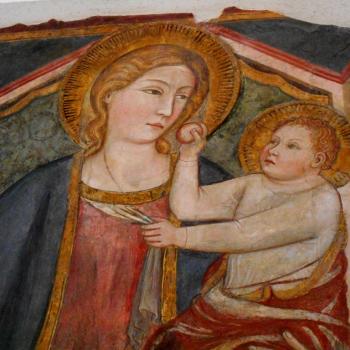There is a small Episcopal church in my hometown and it has had an important role in my faith formation as a Catholic. Back in the early 00s, when Boston was embroiled in the clergy sex abuse scandal that would eventually result in the downfall of Cardinal Law, I looked on longingly at that small, white New England church as an escape route. If I became too angry with the church, or too distrustful of a leadership who had turned a blind eye to the abuse of children while at the same time fighting the legalization of same sex marriage in Massachusetts tooth and nail (issuing at one point a million dollar mailing), I could enter those doors and find a home.
I never did walk in that church. I stayed Catholic. I always will.
With the revelations in Pennsylvania, I think again of that small Episcopal church. Since then, I have made many Episcopal friends and have a great respect for the church. While I was studying at Oxford, I often attended Anglican services and was surprised at the proximity to Catholic liturgy. As I think often that the Church needs to consider opening all its doors to women ready to devote their lives to Christ and the Eucharist, I see the Episcopal church as a model for some of these initiatives. Still, I have remained Catholic, even when the news of yet more victims, yet more coverups, yet more evasions of responsibility fill my ears.
Why?
The first reason, of course, is my devotion to the liturgy and the eucharist which have sustained me for a lifetime. The Church, as well, with its global dedication to the poor and needy has kept me among the faithful. Growing up as a Catholic in a Jesuit College, I was inspired also by the movements outside of traditional parishes, those modeled on the work of Dorothy Day. I still subscribe to The Catholic Worker and keep an ear open to the Church’s critiques of materialism and the excesses of greed and the market.
As importantly, I recently became VIRTUS trained and I believe this program and the recommendations it offers will play a huge role in rebuilding trust in the Church. I have attended/participated in many compliance training sessions, but VIRTUS is by far the best. The architectural recommendations as well as the training to become active witnesses and protectors of our children make it easy for Catholics to employ best practices in preventing and reporting abuse. Dioceses across the country must continue to insist on and supervise VIRTUS compliance in all of its spaces.
I also stay Catholic because I believe in the Church’s commitment to reconciliation and healing. We must not only pray for the victims but become active healers of the victims, working to ensure that the power structures and blindspots that made this wide-spread abuse possible are dismantled and corrected. Becoming VIRTUS trained is a great first-step. Advocating for Parish communities in which blind authority is replaced by community care and accountability is another important step.
I have seen distressing opinions in regards to clergy abuse. Some prominent conservatives blame “gay priests” others attack clerical celibacy as if pedophile predators are neutralized by marriage. Abuse of this kind exists in schools, churches, workplaces, and everywhere else. Still, the Church should never be content or complacent to be an “everywhere else.” It must be an exemplary and just place.
The Church has failed its flock. Those of us who remain loyal to it must help it be accountable for its wrongs and engage actively in the work of healing. No longer to evade blame, but to evade more pain for those the Church has hurt.












